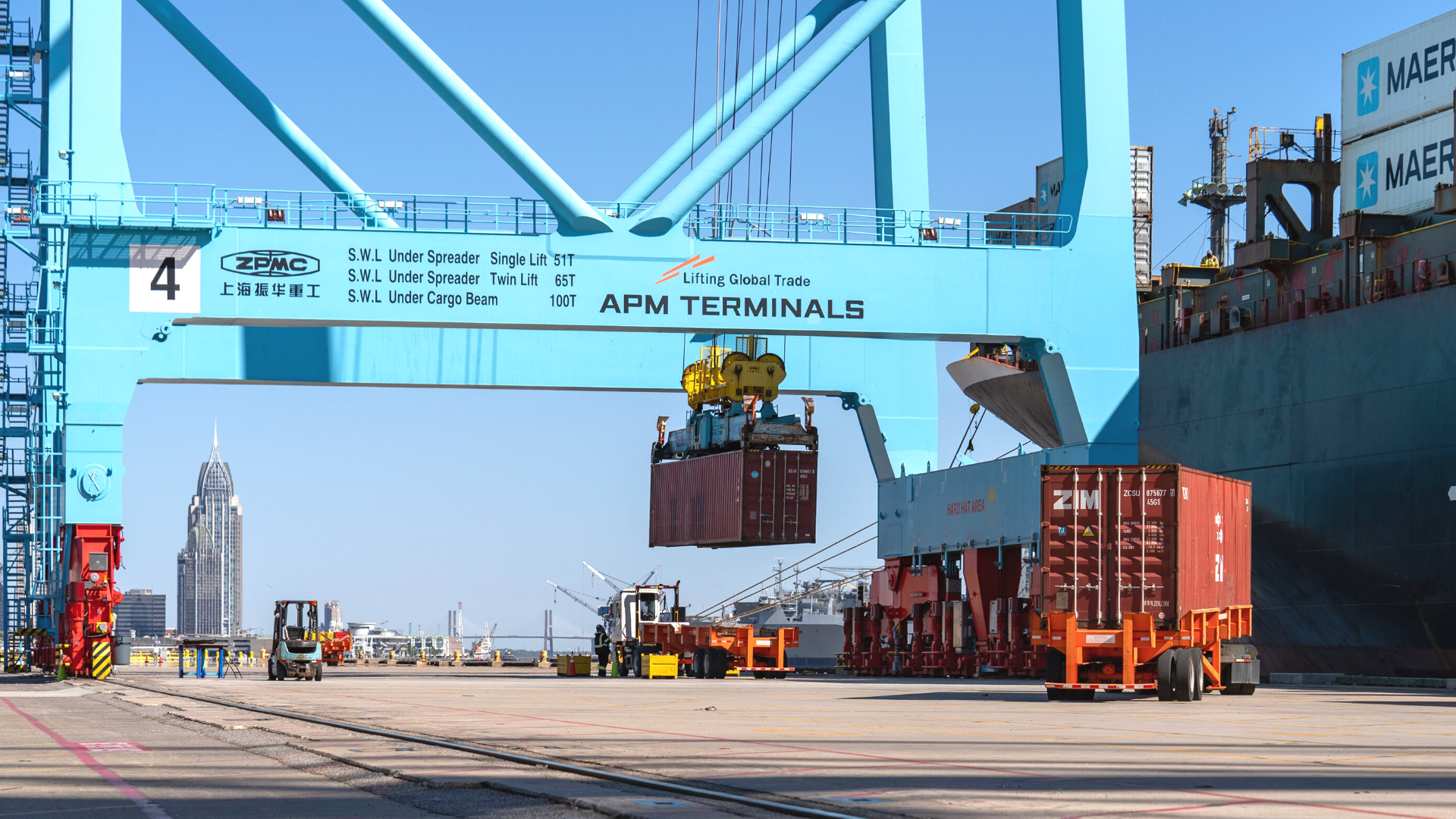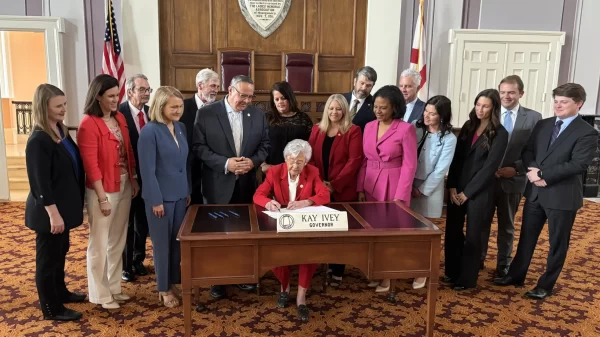The Port of Mobile generated nearly $100 billion in revenue for the state last year, marking an increase of $13 billion from the previous year, as announced by Gov. Kay Ivey on Thursday.
“While our Gulf Coast port may be referred to as ‘The Port of Mobile,’ the staggering economic impact figure of $98 billion signifies that it is truly ‘The Port of Alabama,'” Ivey stated. “Whether it pertains to our thriving automotive industry, the exports of natural resources such as coal and limestone, or countless other Alabama-made and Alabama-sourced goods, the Port of Mobile influences every corner and every industry within our state. The future looks promising for our port, and I am eager to witness its continued growth and its substantial contribution to all of Alabama.”
The economic impact report, commissioned by the Alabama Port Authority, encompasses the calendar year 2022—the most recent year for which complete data is available. It reveals that the Port’s significant growth once again provided a major boost to all 67 counties in Alabama.
In detail, the report highlights that, in addition to a statewide economic impact of $98.3 billion, the Port supports 351,359 jobs in Alabama, equivalent to one out of every seven jobs statewide.
These positions generate $22.5 billion in income for Alabamians throughout all 67 counties.
“Alabama’s port has experienced tremendous growth—and we’re just getting started,” remarked Alabama Port Authority Director and CEO John Driscoll. “These impact figures demonstrate both the benefit of Alabama’s port to our entire state and the crucial role of state investments in facilitating this growth. With more than $1 billion in capital projects currently underway, we anticipate continued growth, and more importantly, the enhancement of Alabama businesses’ competitiveness on a global scale.”
Moreover, in 2022 alone, the Port and its related industries contributed $2.4 billion in taxes to the state, local governments, and the federal government.
“The Port of Mobile is an economic powerhouse for the state of Alabama, growing bigger and stronger every day,” said Sen. Greg Reed, R-Jasper, President Pro Tempore of the Alabama Senate. “With coal being one of the port’s largest exports, and my district being the state’s foremost producer of coal, the success of both the coal industry in Alabama and the Port of Mobile are closely linked. I am a proud supporter of the port and its mission, and I am pleased but not surprised by the incredible economic impact it has on our great state.”
Currently, the Port is undertaking more than $1 billion in capital projects across the state. The Port Authority aims to expand its capacity to one million TEUs (twenty-foot equivalent unit cargo containers) with the completion of the Phase IV expansion at the container terminal. Besides the terminal expansion and the harbor deepening and widening project, the Alabama Port Authority plans to develop logistics facilities in Mobile and inaugurate a new inland intermodal facility served by CSX in Montgomery, Ala. These projects, expected to commence operation within the next two years, will offer new advantages and opportunities for shippers.
Other strategic investments include the construction of a fly-over bridge for on-dock rail access at the container terminal, the modernization of general cargo piers, and the development of an inland intermodal facility in North Alabama. These initiatives are mainly funded through federal budget appropriations and grants, spearheaded by former Senator Richard Shelby. In addition to federal funding, the Alabama State Legislature allocated $20 million in 2023 to modernize the Port’s McDuffie Coal Terminal. Beyond these public funding sources, the Port reinvests all revenue, beyond operating expenses, in improving and expanding its facilities.
“Geographically, my home district could hardly be further from the Port of Mobile, yet the port’s impact on my district—and almost all of my members’ districts in the Alabama House—is very tangible,” stated House Speaker Nathaniel Ledbetter. “It’s evident that our investment in the Port is yielding significant returns for our state, making it crucial that we continue to support this economic engine for Alabama’s ongoing success.”
Following the passage of the Rebuild Alabama Act, which provided funding to deepen and widen the Port of Mobile’s ship channel, the economic impact of the Port in Alabama has surged by more than $200 billion. Furthermore, the Port’s planned Intermodal Container Transfer Facility in Montgomery has spurred $2.2 billion in new project announcements in the area, milestones achieved even before the completion of the projects.
This economic study was conducted by Martin Associates, an internationally recognized economic and transportation consulting firm specializing in the analysis of the transportation and logistics industry. The report, covering both public Alabama Port Authority facilities and private operators utilizing the port, aims to be rigorous and conservative in its analysis. Notably, Martin Associates identified containerized cargo as the most significant new line of business driving the Port’s rapid growth.
Separately, and independent from a recent analysis in Forbes, which ranked the Port of Mobile as the second-fastest-growing port of entry into the United States over the past decade—surpassing Chicago



















































